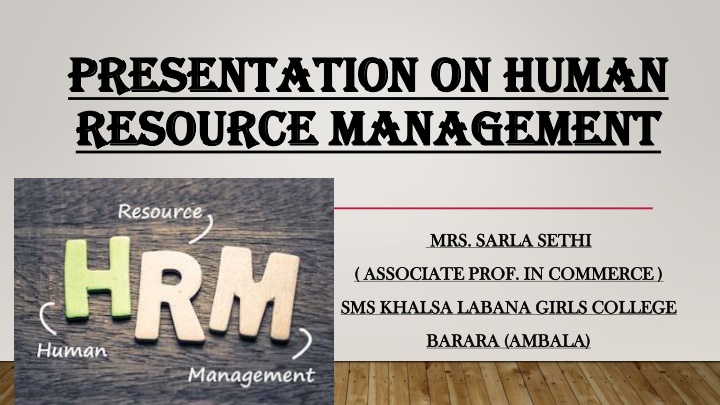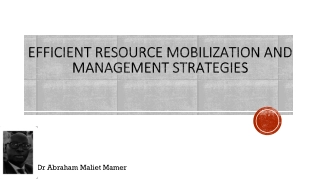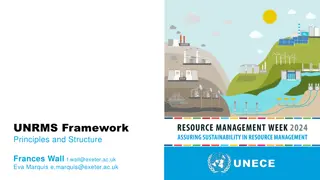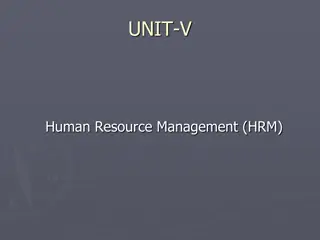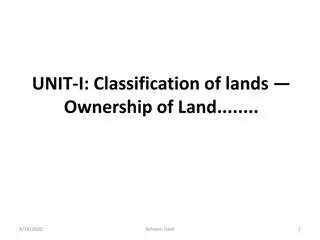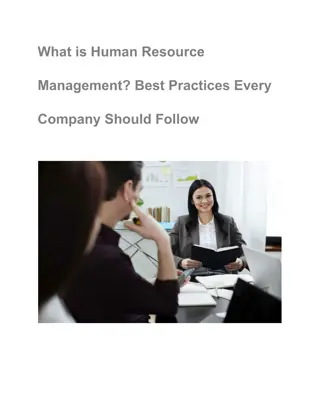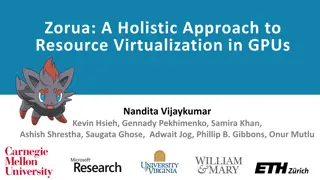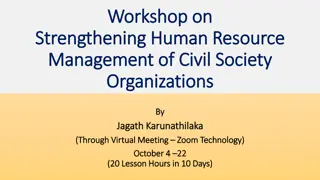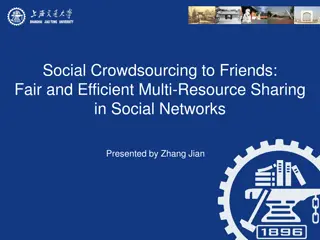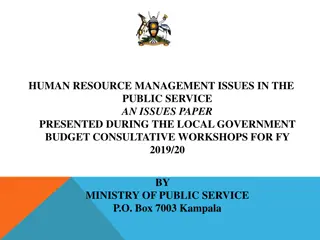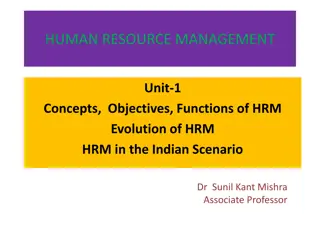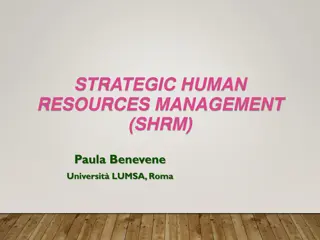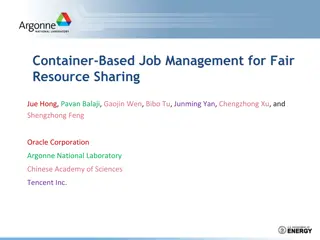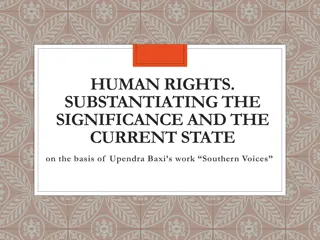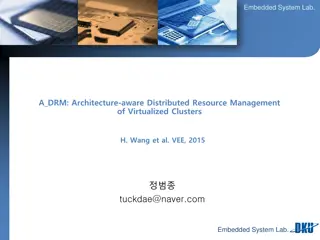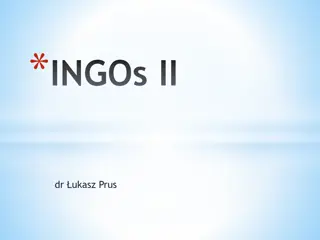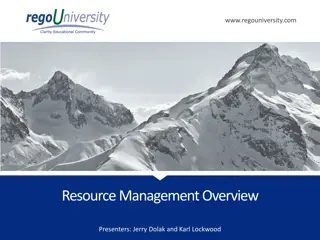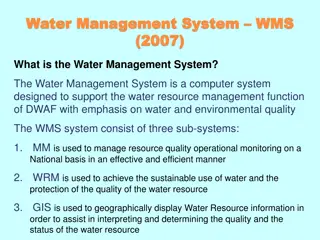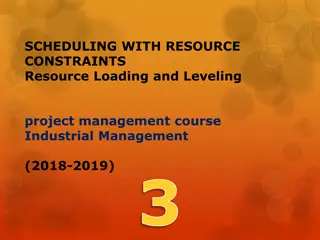Insights into Human Resource Management
Human Resource Management (HRM) encompasses acquisition, development, motivation, and maintenance of human resources for organizational success. Explore the nature of HRM as an action-oriented, people-oriented, and universal practice aimed at achieving organizational goals through continuous workforce development.
Download Presentation

Please find below an Image/Link to download the presentation.
The content on the website is provided AS IS for your information and personal use only. It may not be sold, licensed, or shared on other websites without obtaining consent from the author.If you encounter any issues during the download, it is possible that the publisher has removed the file from their server.
You are allowed to download the files provided on this website for personal or commercial use, subject to the condition that they are used lawfully. All files are the property of their respective owners.
The content on the website is provided AS IS for your information and personal use only. It may not be sold, licensed, or shared on other websites without obtaining consent from the author.
E N D
Presentation Transcript
PRESENTATION ON HUMAN PRESENTATION ON HUMAN RESOURCE MANAGEMENT RESOURCE MANAGEMENT MRS. SARLA SETHI MRS. SARLA SETHI ( ASSOCIATE PROF. IN COMMERCE ) ( ASSOCIATE PROF. IN COMMERCE ) SMS KHALSA LABANA GIRLS COLLEGE SMS KHALSA LABANA GIRLS COLLEGE BARARA (AMBALA) BARARA (AMBALA)
HUMAN RESOURCE MANAGEMENT Let us understand it by dividing the term into its sub parts. HUMAN:- PEOPLE RESOURCE:-ASSET FOR ORGANISATION MANAGEMENT:- CO-ORDINATION & CONTROL TO ACHIVE SET GOALS. HRM is the management of the employees of an organisation. Simply speaking, it is putting right people to the right task thereby making maximum use of the employees talent and abilities
DEFINITIONS DEFINITIONS OF HRM OF HRM Human resource management is a process consisting of four functions- acquisition, development, motivation and maintenance of human resources. - Decenzo & robbiNe Decenzo & robbiNe The human resource management refers to the philosophy, policies, procedure and practice related to the management of people within the organisation. - Wendell l. French Wendell l. French
NATURE OF NATURE OF HUMAN RESOURCE MANAGEMENT HUMAN RESOURCE MANAGEMENT Action oriented Natureof HRM People oriented
1. 1. Universal: Universal:HRM a universal in nature. It is present in all types of organisations i.e. government, business, education, health, or social etc. It permeates all types and levels of management in all organisations. 2. 2. Action Oriented Action Oriented: : HRM is action oriented approach. It deals with policies and practices related to management of people, and resolves their problems. 3. 3. Goal Oriented Goal Oriented: : HRM is Directing towards attainment of organisational goals by strategic development of work force and personnel techniques. 4. 4. Development Oriented: Development Oriented: HRM is development oriented approach. It aims at development of human resources. It assesses the training needs of the employees and develops their knowledge and skills in the interest of the organisation.
5. 5. People Oriented: People Oriented: HRM is all about people i.e. in the organisation. It covers all kinds of people at various levels in the organisation. It is concerned with development, motivation and maintenance of people in the organisation. 6. Continuous Process: Continuous Process: HRM is a continuous process. It has to regularly assess the human resource requirement of the organisation, and plan to meet the human resource need of the organization according to its ever changing needs and human resource requirement of various departments in the organisation..
1. 1.Social Objective: Social Objective: Every organisation i.e. business, government, education, health etc. is a part of society. It is expected that they will responsibly use the human resources in an ethical way not only for the benefit of organisation but also for the welfare of the society. 2. 2.Organisational Organisational Objective: Objective: HRM does not work in isolation. No organisation can achieve its objective without human resources. It is the skill and efficiency of the human resources which utilizes all other resources i.e. money, material, technology, machines. This departments is supposed to work in coordination with all other departments of the organisation.
3. Functional objective: 3. Functional objective: Human resource department has to take care of organisation s demand. It is supposed to perform various Functions such as human resource planning, recruitment, selection, training, development assessment, employee relation etc. 4. Personal objective: 4. Personal objective: Human resource is the organisation help to achieve organisational goals. So, the organisation should also help human resources to satisfy and achieve their personal goals. The satisfied and motivated employees will work more efficiently in attaining organisational objectives. The organisation should take care of training and development needs, career planning, and adequate compensation to employees.
Importance of hrm Importance of hrm Organisational Significance Social Significance Professional Significance
ORGANISATIONAL SIGNIFICANCE 1. It helps in identifying the human resources requirement of the organisation. 2. Effective utilisation and development of human resources. 3. It helps in integration of individual goals with organisational goals. 4. It helps the organisation to achieve its goals. 5. Ensuring full cooperation of employees through incentive, participation. 6. It ensures the availability of capable and efficient human resources to the organisation.
SOCIAL SIGNIFICANCE 1. Responsibly using human resources in an ethical way for the benefit of the organisation well as the society. 2. Increasing employment opportunities for the members of the society. 3. Contribution in enhancing and developing the skill and knowledge of human resources of the society and nation. 4. Society is benefitted by good HR practices of the organisation.
PROFESSIONAL SIGNIFICANCE 1. It promotes team-spirit and team work among human resources. 2. It provides healthy work environment and effectively utilizes the skill and talent of human resources in the organisation.
Functions of hrm Functions of hrm Managerial Functions Operative Functions 1) Recruitment/Hiring 2) Job Analysis & Design 3) Performance Appraisal 4) Training & Development 5) Employee Welfare 6) Maintenance 1)Planning 2)Organising 3)Staffing 4)Directing 5)Controlling
MANAGERIAL FUNCTIONS MANAGERIAL FUNCTIONS 1. Planning: 1. Planning: One of the primary function where number & type of employees needed to accomplish organizational goals are determined. Research forms core HRM planning which also helps management to collect, analyze and identify current plus future needs within the organization. 2. Organising: 2. Organising: Organisation of the task is another important step. Task is allocated to every member as per their skills and activities are integrated towards a common goal.
3. Staffing: Sucess or failure of an organisation depends on the capability of the workforce working in an organisation. If an organisation lack suitable and capable employees, it cannot achieve its goals. Thus staffing function includes forecasting of human resource planning, recruitment of employees, selection, training and development. In business, staffing function is performed after planning and organizing. 4. Directing: This includes activating employees at different levels and making them contribute maximum towards organizational goals. Tapping maximum potentialities of an employee via constant motivation and command is a prime focus. 5. Controlling: Post planning, organizing and directing, performance of an employee is checked, verified and compared with goals. If actual performance is found deviated from the plan, control measures are taken.
OPERATIVE FUNCTIONS OPERATIVE FUNCTIONS 1. Recruitment/Hiring: Hiring is a process which brings pool of prospective candidates who can help organization achieve their goals and allows managements to select right candidates from the given pool. 2. Job Analysis & Design: Describing nature of the job like qualification, skill, work experience required for specific job position is another important operative task. Whereas, job design includes outlining tasks, duties and responsibilities into a single work unit to achieve certain goal. 3. Performance Appraisal: Checking and analyzing employee performance is another important function that human resource management has to perform.
4. Training & Development: This function allows employees to acquire new skills and knowledge to perform their job effectively. and development also prepares employees for higher level responsibilities. 5. Employee Welfare This function takes care of numerous services, benefits and facilities provided to an employee for their well-being. 7. Maintenance: Minimizing employee turnover and sustaining best performing employees within the organization is the key. Minimizing ROI within HR department is also a key goal for Human resource management team.
